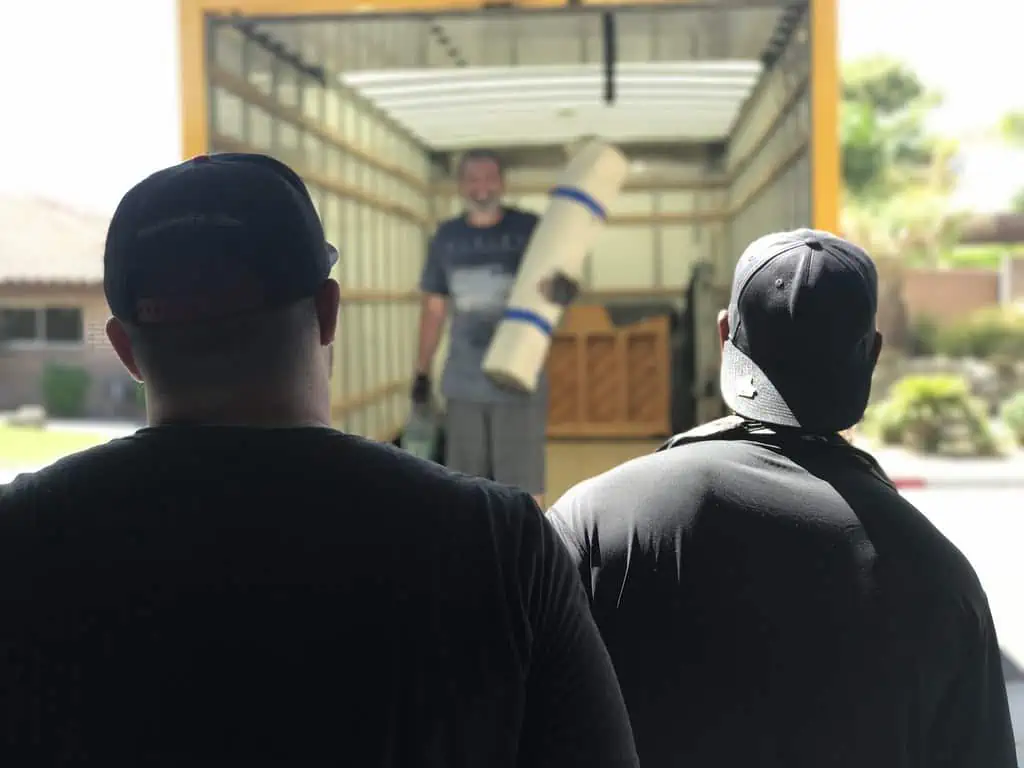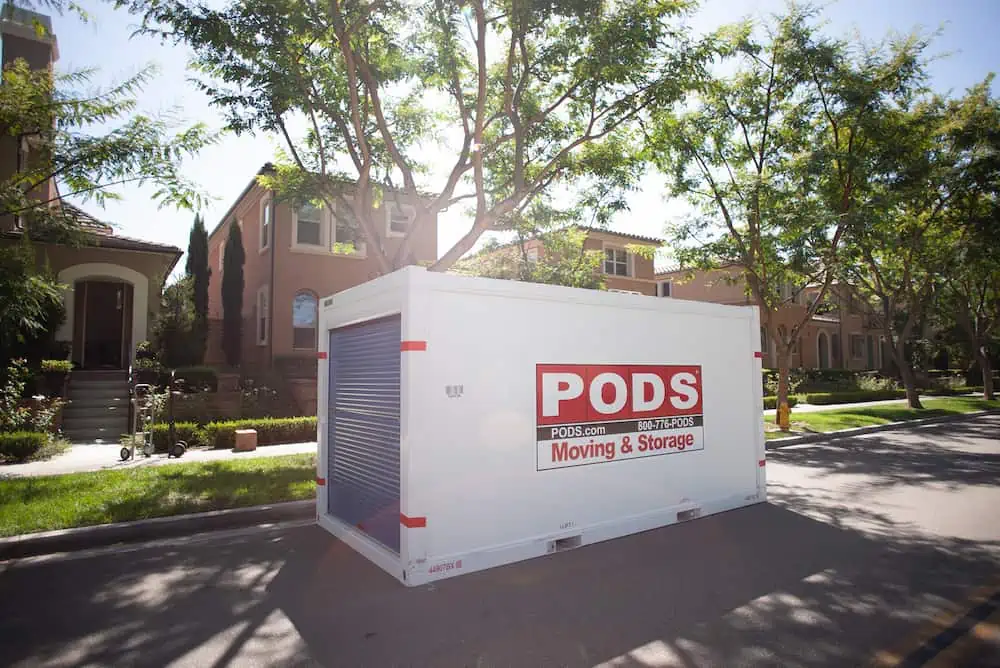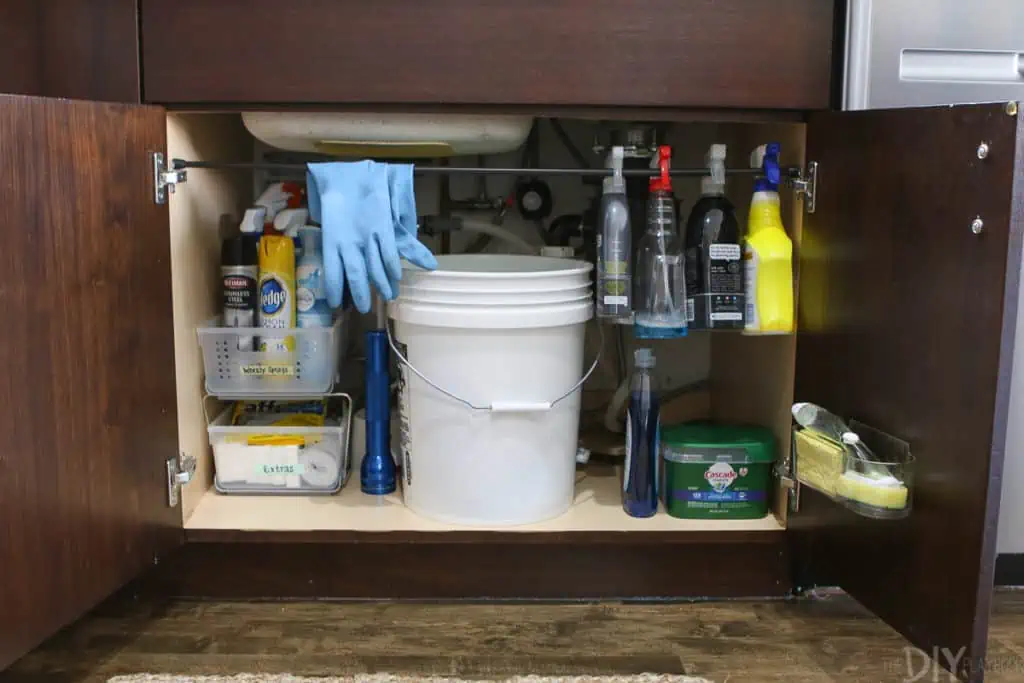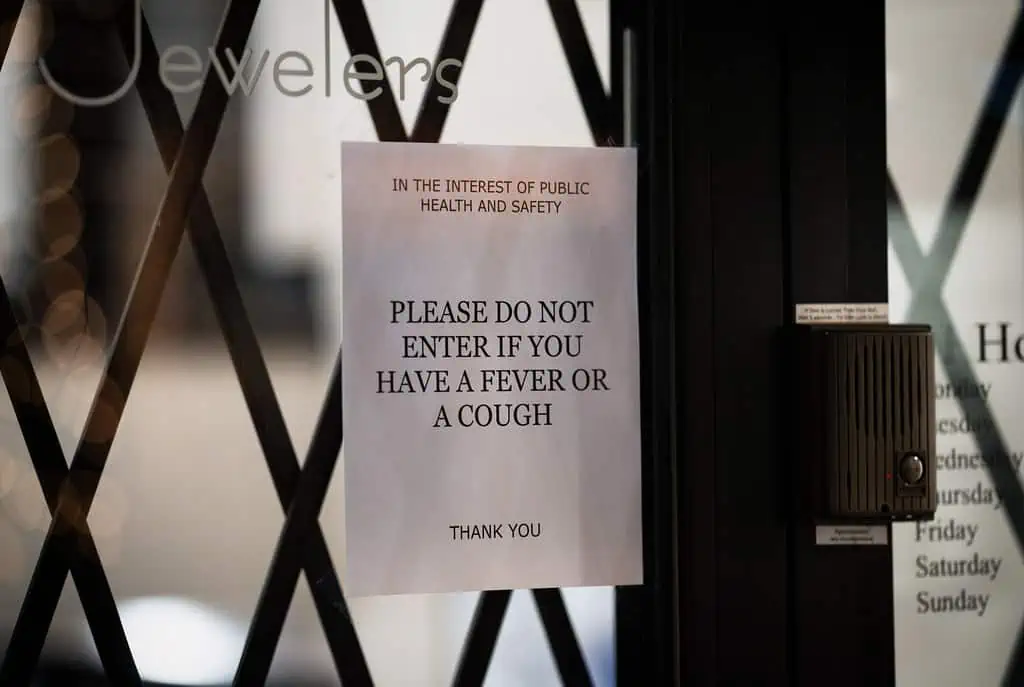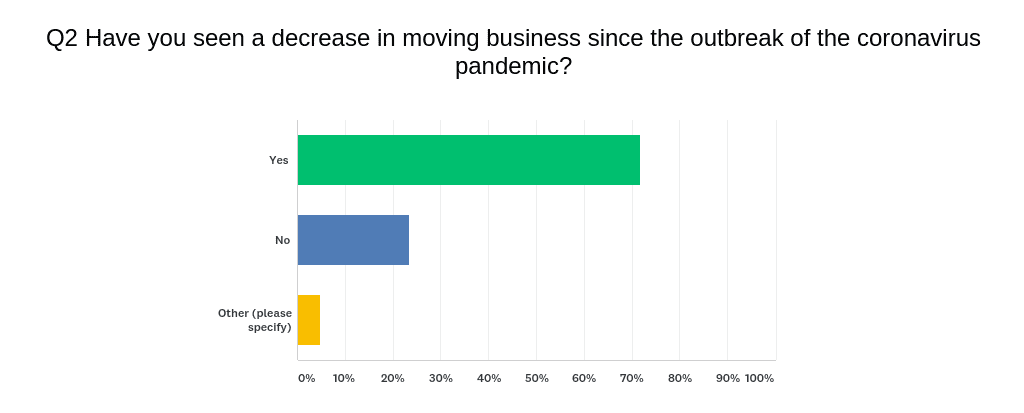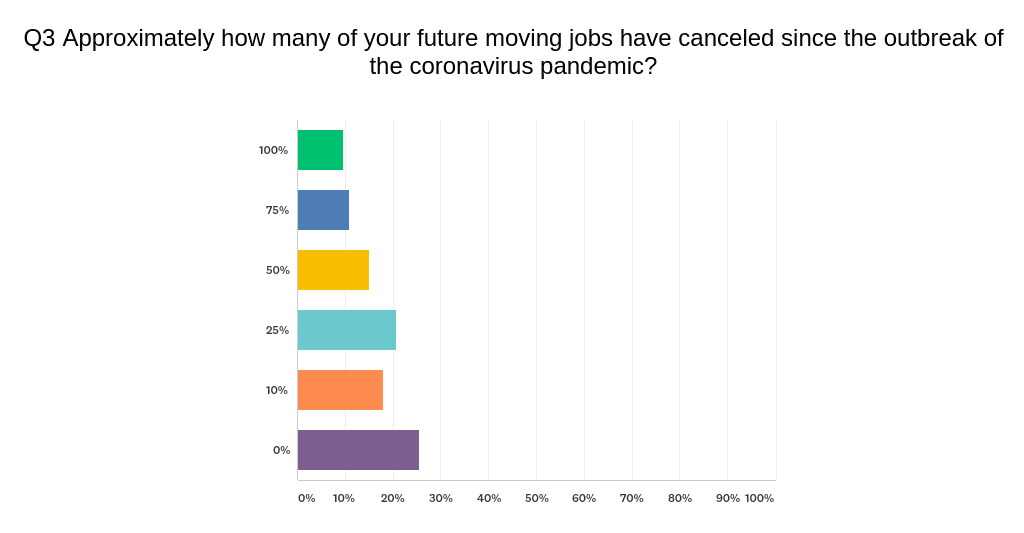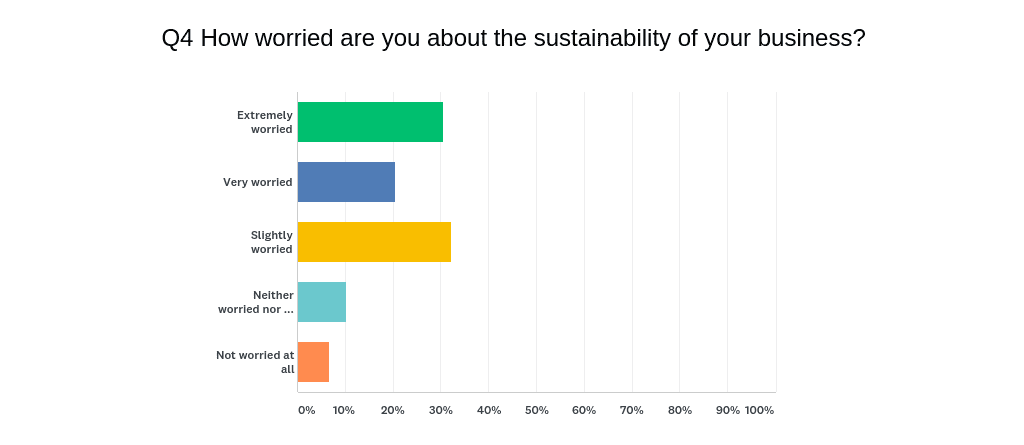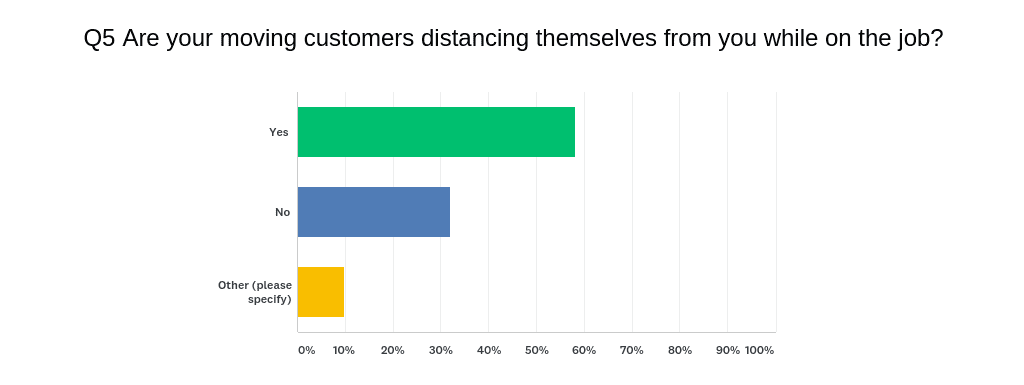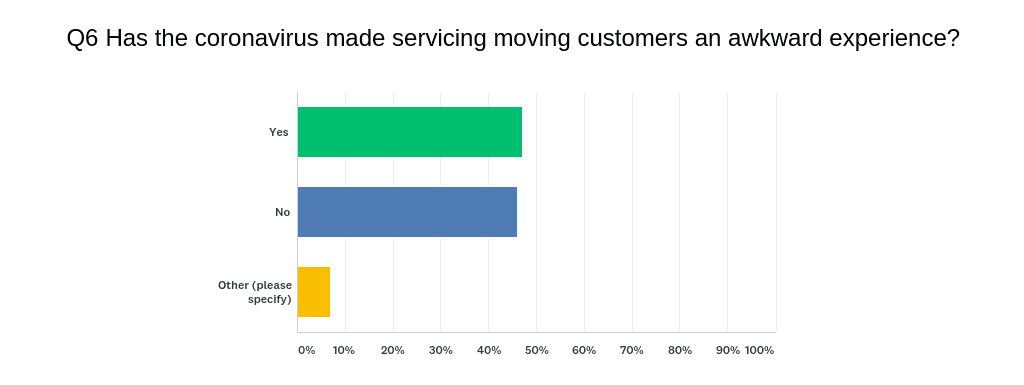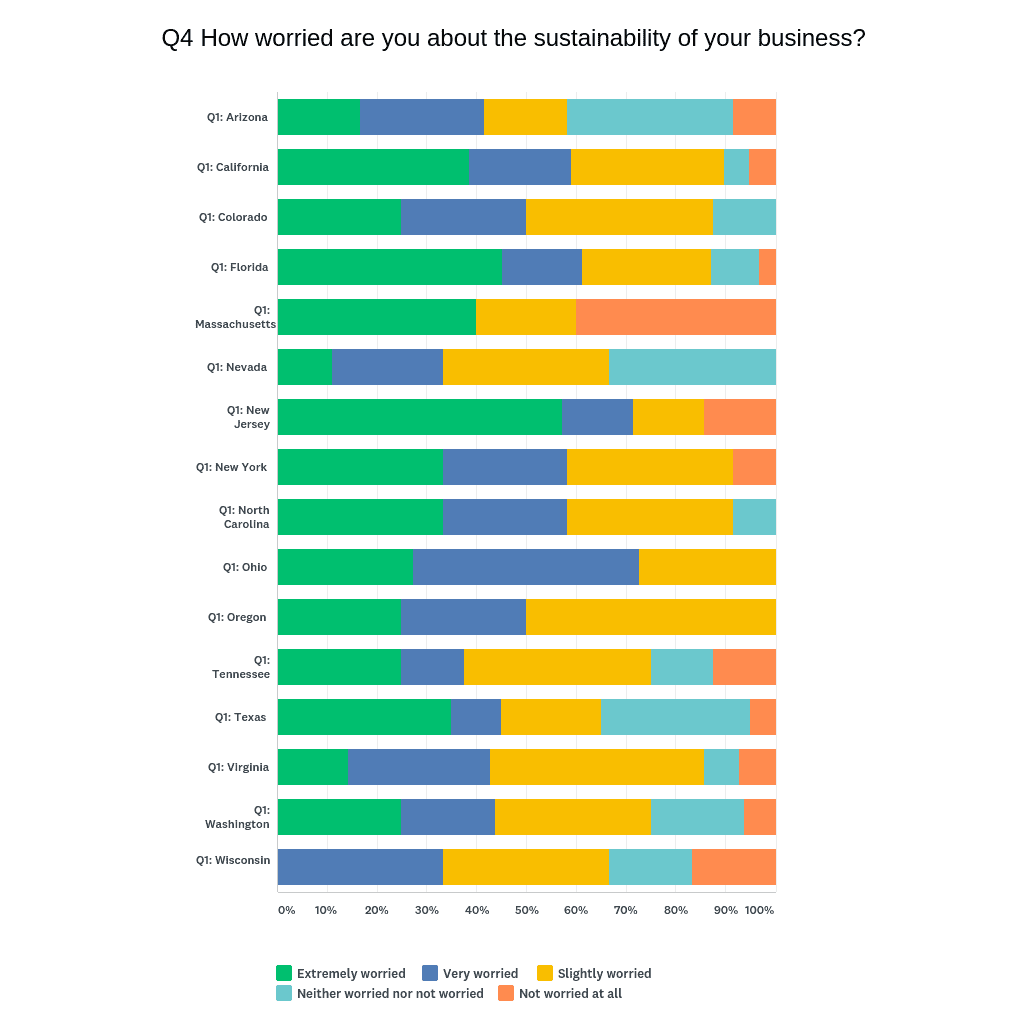The COVID-19 #StayHome movement has postponed a lot of moves until things looked a little safer out there.
If this sounds like the boat you’re in, you’ll be happy to know moving services (with added precautions) are now being offered by lots of moving companies, given most states are now opening up with restrictions.
Still, just because states are lifting restrictions does not mean we’re automatically back to the old world we kind of, sort of remember.
Keep these things in mind when you decide to move during COVID-19.
First and foremost, remember how the virus spreads
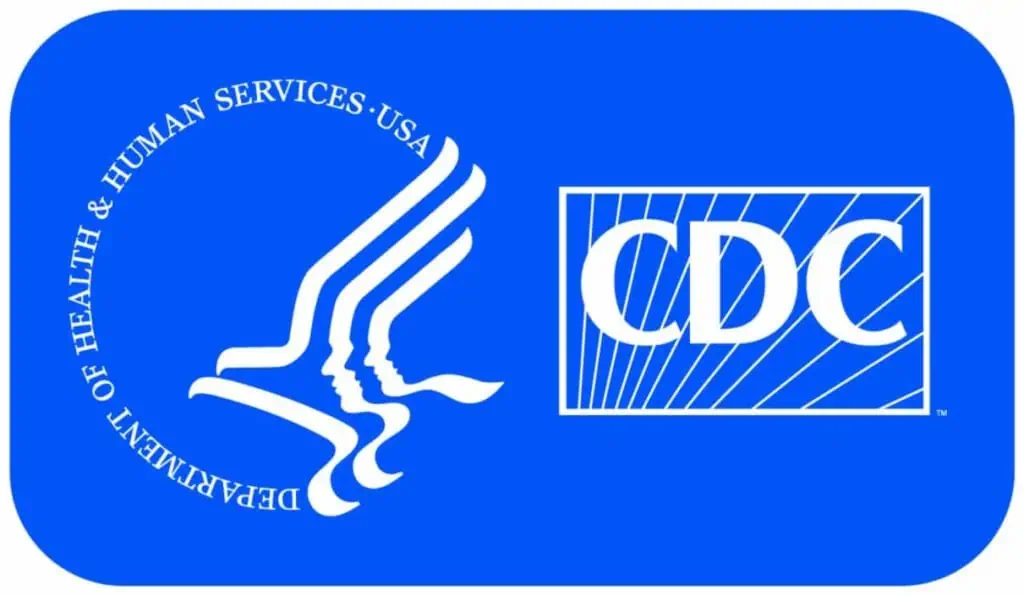
The Centers for Disease Control tell us that the COVID-19 virus is transmitted in droplets coming from infected people’s mouths through the air.
The virus can also spread indirectly, originating in droplets of an infected individual before landing on surfaces that are then touched by another individual.
Yep, this means that staying safe on your move requires a two-point strategy:
- Limit interpersonal contact
- Keep surfaces decontaminated
Here’s how you address both when you move.
Strategically limit the number of people you are near throughout your move
The biggest decision you can make towards limiting contact is in how you’ll be moving.
Is your move small?
If you’re doing a small, local move, your best bet is a DIY Move. Moving your stuff little by little in a car obviously will keep exposure quite limited. (Hopefully, your interactions with a real estate agent, apartment manager, or anyone else stay digital or over the phone.)
What if you need to rent a rental truck for something bigger? The good news is that companies like Budget, U-Haul, and Penske have put together strong sanitary protocols for their trucks and new policies for their employees. Read about them here.
Is your move bigger than a 1-bedroom apartment?
You still have options for moving around as few people as possible, and most of them are pretty good.
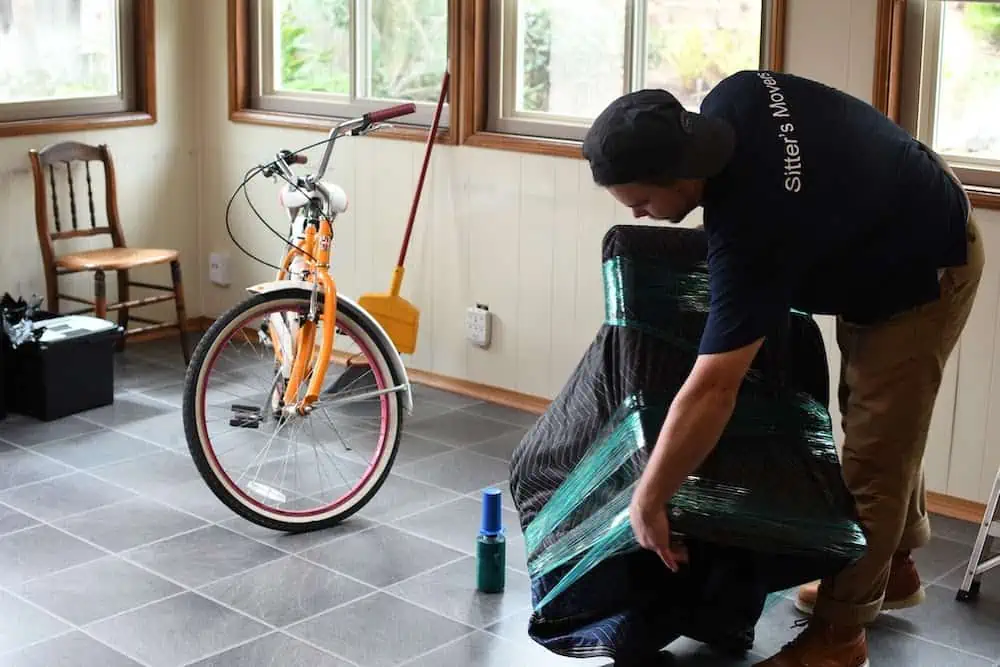
A couple hourly movers without a truck are a safer option. And they’re perfect for when you only need help with a few heavy things. Labor-only movers tend to be way more affordable too.
But for optimal safety, make sure to hire vetted movers. Moving companies through HireAHelper, which were already rated by quality and price, are now also weighted by the safety measures they adopt.
This means no matter what service you hire them for, your movers can provide safety equipment such as face coverings and gloves, and are also trained to adhere to social distancing guidelines to keep both you and their crew as safe as possible.
Moving containers are fantastic for moving safely after your state opens up. Most of the time, nobody needs to touch your things at all.

The way most moving container companies work is that they drive at least one big storage unit to your house, where you (or your movers) will fill it up. After that, someone comes and picks up your sealed container and takes it to either storage or your destination.
This means nobody necessarily has to touch any of your belongings, but your stuff still gets there! Moving containers are a pretty safe COVID moving option if they’re available to you.
Full-Service Moving companies are open for business too, though they vary in their safety protocol and inherently will require the most amount of people and foreign moving equipment in and out of your home. Do your research!
Make sure your estimates are done over the phone
Normally, this is something I discourage because even with the best and most honest of intentions, the probability for error is too large and there is a good chance the estimate you receive will be way off.
But tough times demand tough decisions, so work with your prospective movers to get as accurate an estimate as you can. More good news is that HireAHelper has a decade of experience figuring out how many movers (and how much time) you’ll need over the phone when you don’t know.
Now, I urge people to start packing early not just so they can finish a day or two before move day, but to allow those boxes to sit untouched for a day.
Remember to be extremely specific regarding your belongings! How much? How big? How heavy? Some movers even request virtual walk-throughs of your home to give you an estimate.
And if you do somehow end up with an in-person estimate, keep the number of individuals involved to a minimum. Ideally, it will be just you and a single moving company rep, with both of you keeping your distance.
Keep face masks on at all times
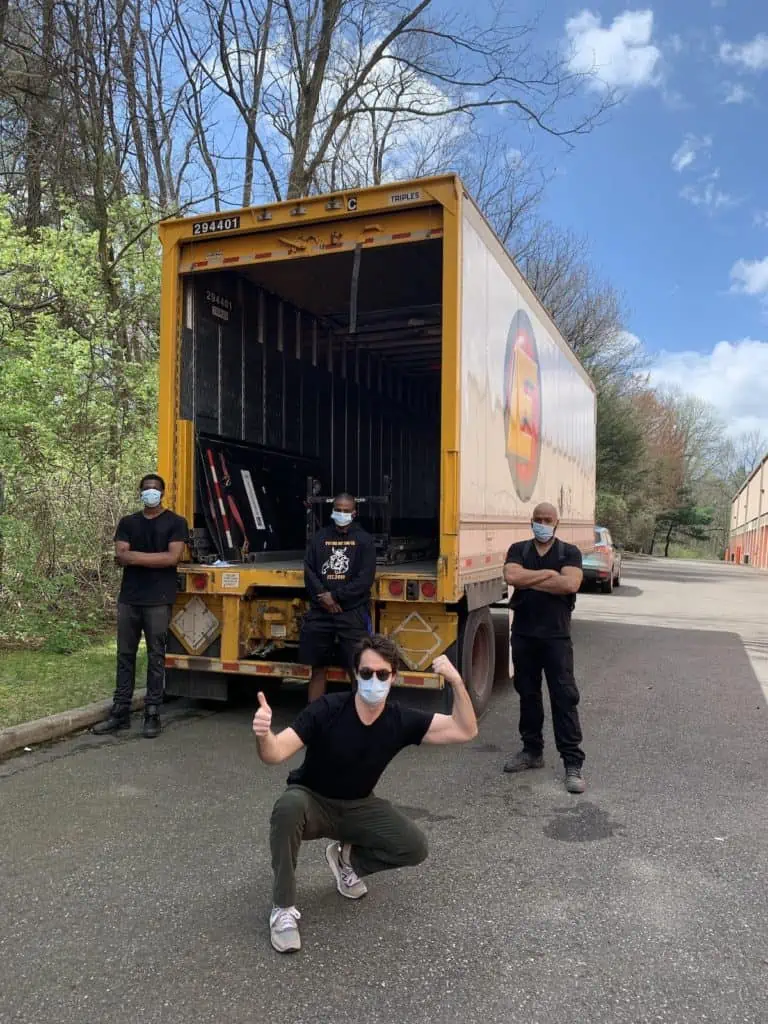
Face masks are effective. Face masks work. Have them and use them, no matter what. Period.
Here are some pointers from the CDC regarding the use of masks.
What about gloves?
Gloves are a tricky subject. Movers will be touching every box and piece of furniture in your place, so whether they wear gloves or not may not make a difference since gloves transmit the virus just as bare hands do. Some will even say that gloves are useless if not counterproductive.
Gloves can also make it more difficult to carry heavy items, and can cause problems like wrist pain over the course of the move. Disposable gloves are preferable to gardening gloves, but it’s better to just practice abundant hand-washing.
Keep the sink running (literally)
Designate one running sink for the movers to wash their hands, and keep it warm. Keep soap, sanitizer, paper towels and a garbage can out in the open so nothing needs to be touched when throwing paper towels in the trash.
Moving companies through HireAHelper, which were already rated by quality and price, are now also weighted by the safety measures they adopt.
It may seem weird to keep the water running, but I promise you the hospital bill would be far higher.
The sink in the kitchen might seem the most logical choice, but assigning the sink in the bathroom might be best as your movers very well may need to use the rest room at some point.
Pick a designated surface or two for the movers to use
Every time another person touches something in your house, the chances of contamination go up.
So to minimize the chances, minimize how many things people touch by picking one or two main surfaces for boxes to sit on, and make sure it’s cleaned with disinfectant beforehand.
Do your own packing
It’s a lot easier to wipe down a bunch of cardboard boxes than it is to wipe down every dish, cup, plate and glass in your kitchen. And it saves time.
Use new boxes
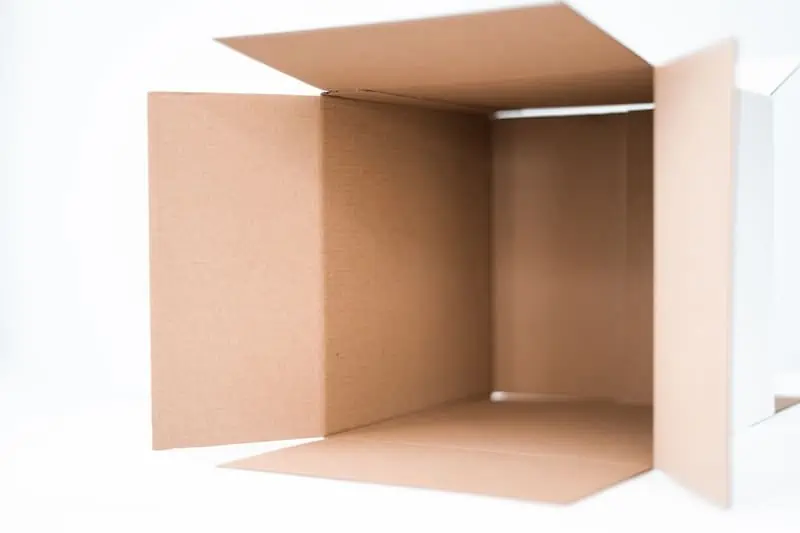
New cardboard can be slightly pricier, but far safer than using used boxes right now. COVID can live on cardboard surfaces for up to a day. (You can use some of the money you’ll save by packing your own items on new boxes.)
I always urge people to start packing early to make sure they get it all done by move day. Now, I urge people to start packing early not just so they can finish a day or two before move day, but to allow those boxes to sit untouched for a day. Your movers aren’t the only ones who might be infected without even knowing it.
Conversely, this also means that at your new home, you should let your boxes sit for a day before unpacking them. If the outside of one box is contaminated, it is way too easy for all your things to end up hosting the virus.
Other things you can do to limit the spread
- Prop doors open to avoid having to touch doorknobs and door handles
- Keep windows open for circulation, a proven method for decreasing the chance of spread
- No shaking hands, exchanging excessive paperwork, or sharing pens
- Limit the number of people in your home. In other words, tell your friends you’ll say good-bye later
- Move your stuff closer to the front door (without totally clogging up the area). The less time your movers have to spend in your home the better
Finally, talk to your landlord/real estate agent/movers if you feel sick
If you or someone you’ve been in contact with is showing symptoms of coronavirus infection, especially if you have a fever, cancel your move. Your movers will certainly understand.
There are no fees for COVID-related cancellation through HireAHelper. Read more about HireAHelper’s COVID policies.
Remember, reopening a state is like letting the dogs out of the car after a long drive. People will be out in huge numbers. Plan accordingly, so you can keep a safe distance from the masses.

